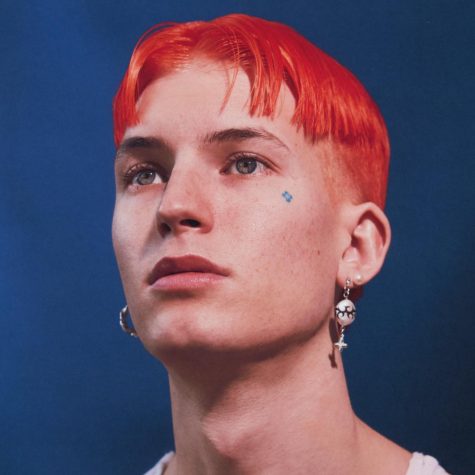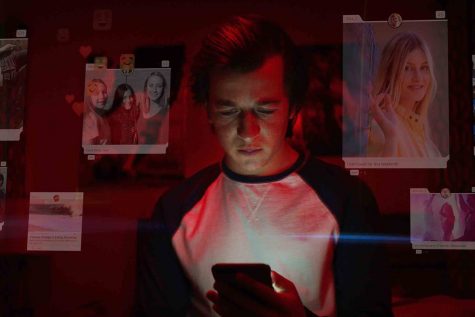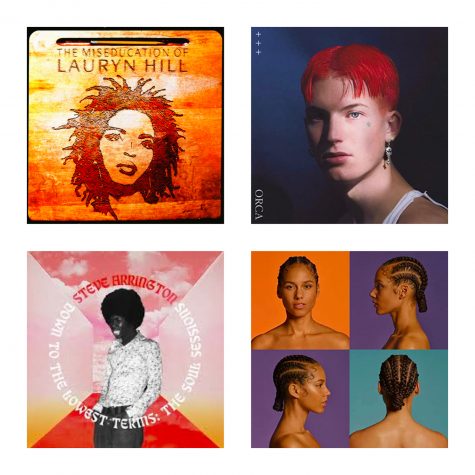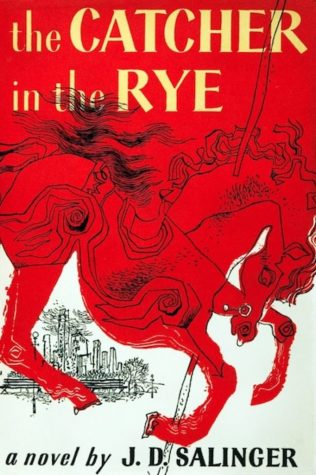Sorry to Bother You: An Unobvious Satire
September 12, 2018
By Matt Dillon
Sorry to Bother You starts out like a mid-2000s workplace comedy. The directionless Cassius Green (Lakeith Stanfield) ends up as a telemarketer, forcing him to deal with abrasive coworkers and the fear of being forgotten.
As the film goes on, it introduces more radical concepts until it becomes a body horror fueled sci-fi satire examining racism and labor rights.
This unorthodox setup makes the film a little uneven, but it manages to avoid becoming completely incoherent. Sorry to Bother You’s strong messages and strange humor ensure it will not be a crowd pleaser, but it is one of the most unique films to come out in a while.
The transition between the two halves of Sorry to Bother You is successful thanks to a consistent tone and strong casting. From start to finish, the film uses surreal elements, which, like the plot, start out small until becoming more prominent.
Initially, the film restricts the strangeness to visual gags, such as a crucifix shaped insulin dispenser and the verbose, politically charged earrings of Detroit (Tessa Thompson).
Once the film has sufficiently misled you, it dives into a contemporary dystopia dominated by casual violence and wage slavery.
The film manages to retain some consistency through the cast’s performances, which unite the clashing aspects of the film. Stanfield and the others provide the audience a much-needed anchor, as their charismatic performances remain coherent even as they witness and experience drastic changes.
One of the most effective elements of the film is Cassius’ “White Voice” (David Cross), which allows him to rise through the ranks as a telemarketer until he joins the privileged and ruthless “power callers.”
Cassius’ coworker (Danny Glover) explains that the secret is not imitating white people, but instead channeling what they want to be. Besides unifying the disparate aspects of the film, the White Voice parses a difficult topic in a clever way.
While not all of Sorry to Bother You’s polemic, off-beat humor works, this element singlehandedly makes the film.
The White Voice serves a vital role in the narrative without losing sight of its message, finding the elusive middle ground between entertainment and education.
As amusing and memorable as it may be, the greatest accomplishment of Sorry to Bother You is its examination of aspiration, integrity and bias in a racist society.
Sorry to Bother You is both hampered and aided by certain technical aspects.
The soundtrack is sufficiently disquieting for mundane scenes as well as the more disturbing ones. It helps unify the various struggles in the film, putting union disputes on the same continuum as sci-fi slavery.
Unfortunately, the dubbing is surprisingly clumsy for a film that relies so heavily on it. The White Voice is still the most effective part of the film but it rarely syncs up properly and in some scenes it’s obvious the editors are to cover up the actor’s mouths as much as they can.
While the editing helps bring the film together, individual transitions from scene to scene are confusing just as often as they are interesting. Sorry to Bother You appeals to very specific tastes and the technical issues do not help matters.
While far from perfect, Sorry to Bother You is a complex, innovative film, and may very well be 2018’s most distinctive film.













If you want a picture to show with your comment, go get a gravatar.